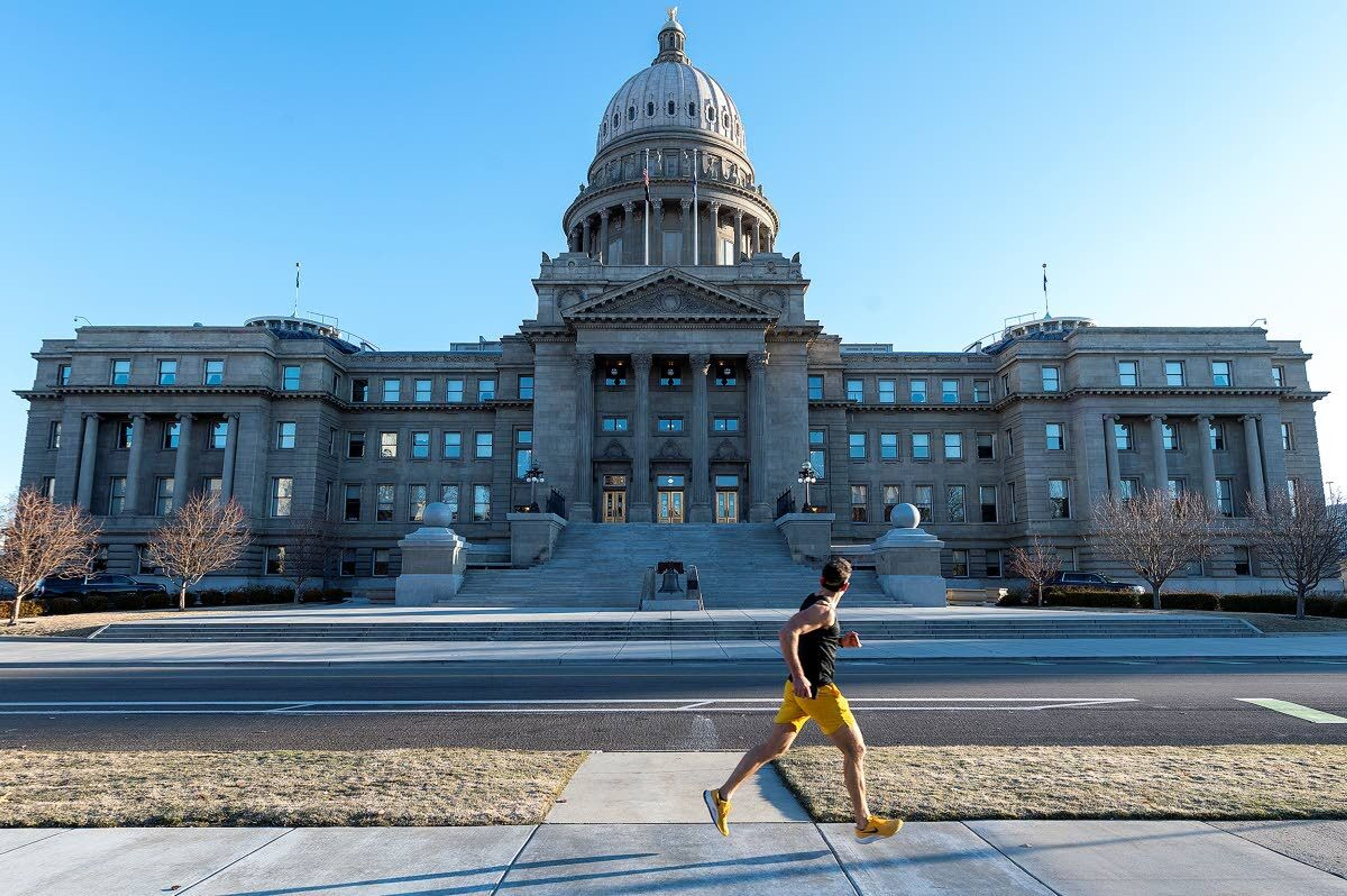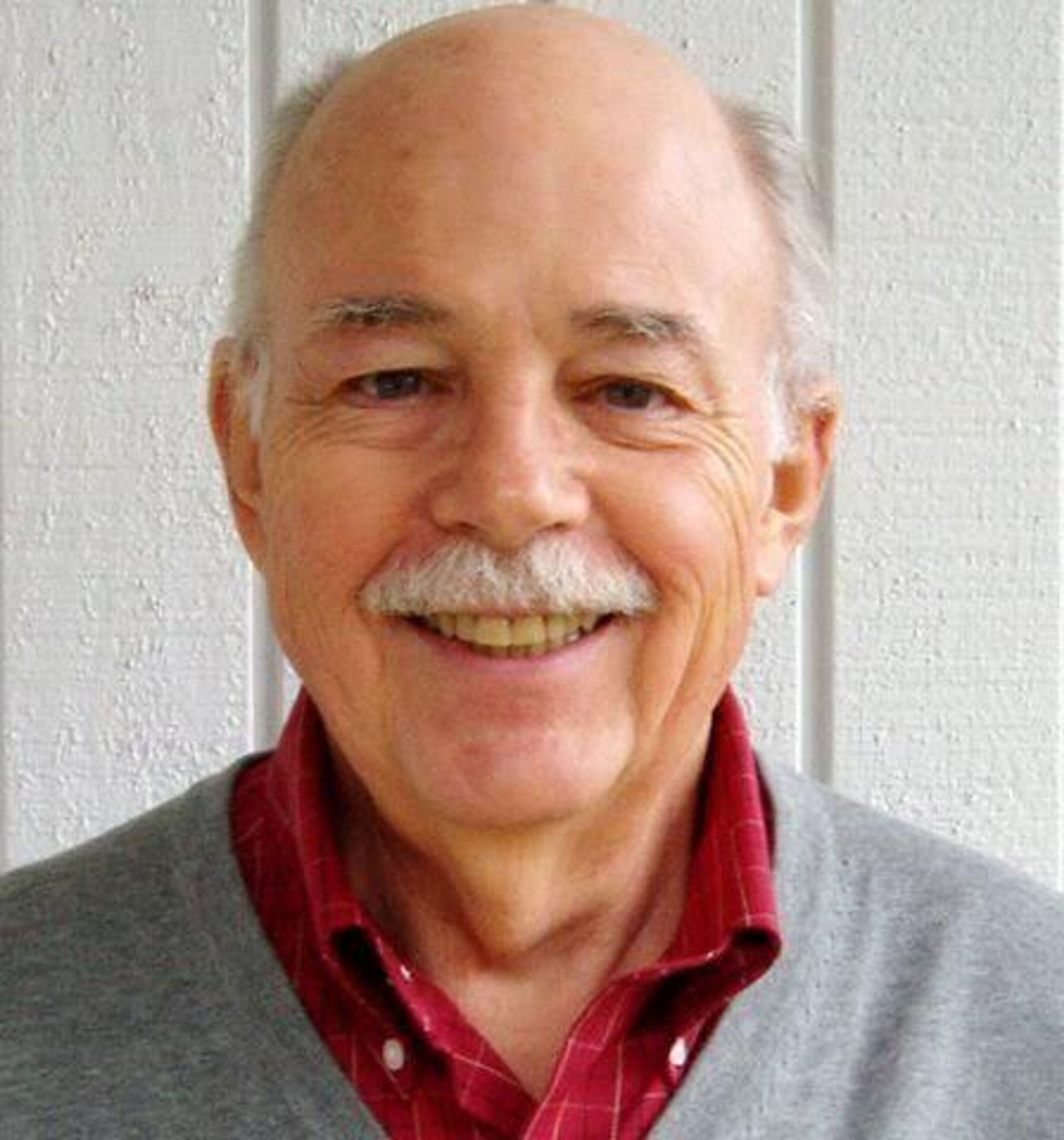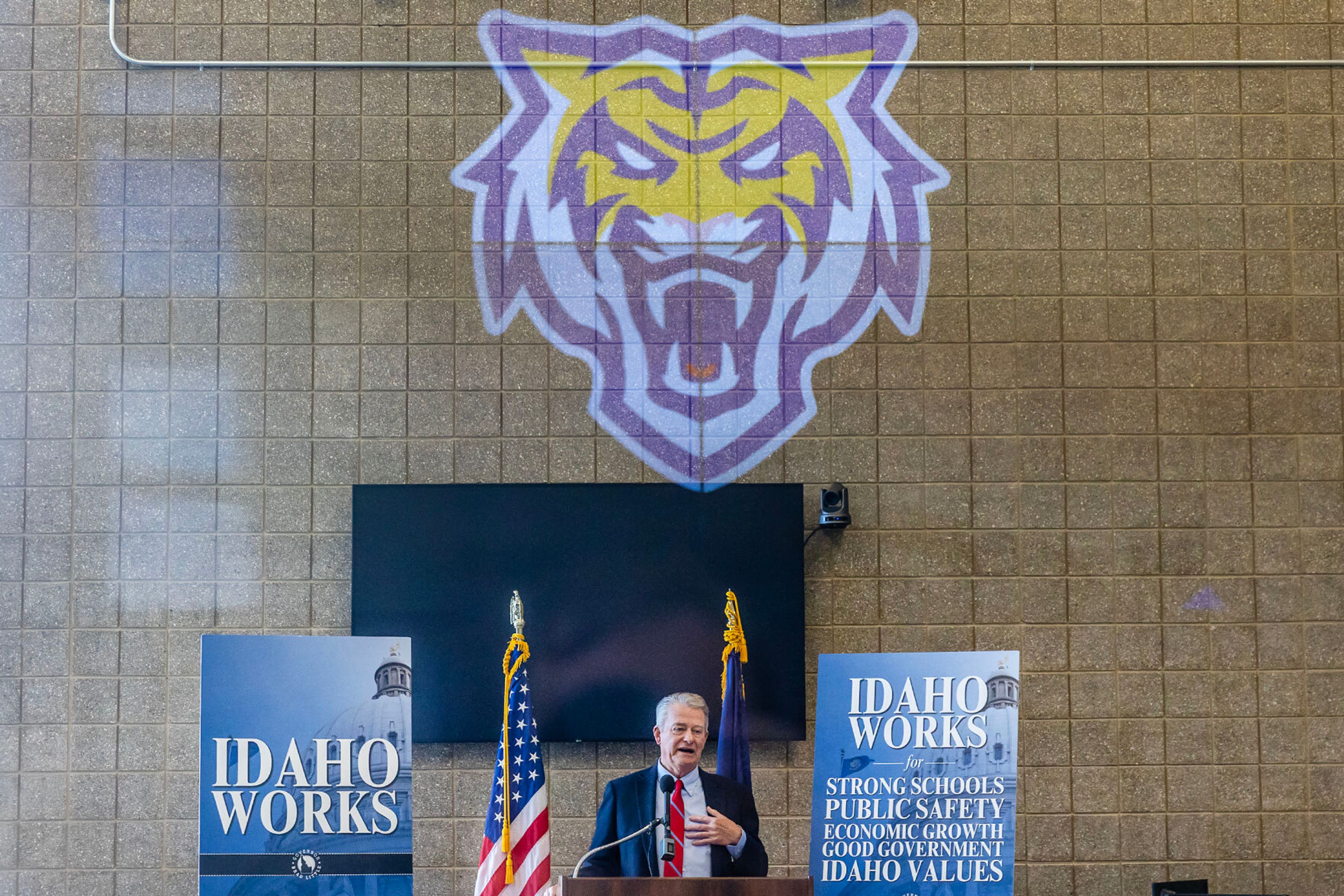Area legislators had success at Statehouse
Regional lawmakers reflect on their time in the 81-day 2022 Idaho legislative session
BOISE — The Idaho Legislature ignored poet Dylan Thomas’s advice and went “gentle into that good night” Thursday, adjourning the 2022 session without overriding any gubernatorial vetoes.
The House adjourned “sine die” at 12:48 p.m. Pacific Time. The Senate followed suit an hour later after saying their traditional end-of-session goodbyes.
Lawmakers from north central Idaho notched a number of victories during the 81-day session.
That includes Rep. Charlie Shepherd, R-Pollock, whose efforts to ban vaccine mandates played a role in the only veto override that was attempted Thursday.
Back in February, Shepherd introduced House Bill 581, the “Employee Medical Information Protection Act,” which prohibited employers from firing, refusing to hire or otherwise discriminating against employees or job applicants because of their vaccination status.
Although the measure passed the House 39-29, it was bottled up in the Senate because of concerns that it was overly broad.
Nevertheless, many senators shared Shepherd’s opposition to vaccine mandates. So rather than kill the bill outright, they revamped it into Senate Bill 1381, which imposed a one-year moratorium on COVID-19 vaccination requirements by state and local governments or private businesses.
“I was happy the Senate took the time to hear my thoughts on the issue,” Shepherd said last week. “It’s more productive when we get along, versus butting heads all the time.”
Gov. Brad Little wasn’t quite as supportive of the legislation, though. He vetoed SB 1381 on Monday, saying it “significantly expands government overreach into the private sector.”
As its final legislative action of the 2022 session, the Senate attempted to override Little’s veto of the bill. However, the 21-14 vote fell three short of the necessary two-thirds majority, so the veto was upheld.
Shepherd had better success this session with HB 481, which increased the home valuation cap for the circuit breaker property tax relief program from 125% of the county median assessed value to $150% or $300,000, whichever is higher.
The proposal, which was signed into law on Tuesday, will prevent hundreds of elderly, low-income Idahoans from losing eligibility for the program.
Other legislation sponsored by area lawmakers and thoughts on the 2022 session include:
Sen. David Nelson, D-Moscow
Like Shepherd, Nelson thought there was less acrimony between the House and Senate this year. That may have contributed to the favorable reception several of his proposals received.
“To be a part of four bills that made it through, that was a big success for me,” he said. “Usually it’s impossible for Democrats to get bills through.”
Among the measures he sponsored or cosponsored was a resolution that raises awareness of the long-lasting impacts of childhood trauma.
He also cosponsored legislation that helps school districts recruit teachers and administrators from out of state. The measure provides more state funding based on their years of experience, rather than treating them as new hires.
Other cosponsors on the bill include Sen. Carl Crabtree, R-Grangeville, and Rep. Julie Yamamoto, R-Caldwell.
Overall, Nelson was pleased with the investment the Legislature made this session in water infrastructure and mitigating wildfire risks. He was also happy that it turned back multiple proposals to restrict Idaho’s election process.
“Idaho has a strong and safe election system, and we need to make sure we don’t make it worse,” he said.
Nelson’s last comment on the 2022 session was to compliment his 5th Legislative District colleague, Genesee Rep. Caroline Troy, who will retire this year after four terms in the Legislature.
“She will be missed in our district,” he said. “She was a powerful force on (the joint budget committee) and protected education. She carried the hard bills.”
Rep. Caroline Troy, R-Genesee
Two weeks after she announced her retirement, Troy said it still hadn’t sunk in yet.
She carried more than 100 bills and resolutions during her eight years in the Legislature. Among the highlights were her efforts to legalize the production and sale of industrial hemp, a bill recognizing public shooting ranges as an allowable use on certain state lands, and her ongoing efforts to improve suicide prevention awareness and training, particularly in public schools.
Troy ended her final session on a high note, with the passage of HB 629.
The under-the-radar bill creates an independent Office of Administrative Hearings, which is intended to eliminate potential bias administrative hearings and protect citizens’ due process rights.
“It’s not the flashiest piece of legislation, but it will make a big difference in the lives of people who are fighting for something precious to them,” Troy said. “It’s the capstone bill of my legislative career.”
Rep. Brandon Mitchell, R-Moscow
Mitchell nearly had a trifecta during his second legislative session, successfully sponsoring two bills dealing with archery equipment, state identification cards and getting a third through the House.
His proposal to beef up protections against fraudulent unemployment claims passed the House 55-13, but stalled in the Senate.
He had more success with HB 507, which sidestepped the Idaho Fish and Game Commission and legalized the use of lighted nocks and mechanical broadheads. His proposal to add an optional “U.S. citizen” designation to state driver’s licenses and ID cards was also signed into law.
Sen. Robert Blair, R-Kendrick, and Rep. Lori McCann, R-Lewiston
As the two newbies in the region’s legislative delegation, the 2022 session was an eye-opener for Blair and McCann.
Blair filled in this year for Sen. Dan Johnson, R-Lewiston, after Johnson was elected mayor of Lewiston. He didn’t found out about the opportunity until late November, so he spent the first month of the session just trying to get up to speed.
“From where I started in November, I’m pretty pleased with my progress,” he said.
Blair cosponsored the dyslexia bill with Crabtree. That was an issue near to his heart, since his own father suffered from the reading disorder.
“When he was in school, he was labeled stupid, dummy, a problem child,” Blair said during the Senate debate on the measure. “Even though that was 80 years ago, the stigma of dyslexia is still alive in Idaho. I wonder what my father could have been and what he could have achieved if he’d been diagnosed early and provided specific education for his learning disability. I wonder what future generations of Idaho students can achieve (after passage of this legislation).”
Blair and McCann also double-teamed on Senate Concurrent Resolution 114, which paid tribute to the late Lewis-Clark State College baseball coach Ed Cheff.
McCann was frustrated by some of the late-session antics in the House, when politics and time pressures got in the way of good public policy.
Overall, though, she felt the session went fairly well.
“I felt like there was a lot of energy trying to work collaboratively and get better bills across the line,” she said.
Sen. Carl Crabtree, R-Grangeville
When he wasn’t immersed in appropriations bills as vice-chair of the joint budget committee, Crabtree spent much of the session working on a slew of education issues.
That includes a trio of kindergarten proposals — one of which was finally approved. The measure provides additional resources to school districts for literacy intervention efforts, including optional full-day kindergarten classes.
Crabtree has been working on the issue for more than a year.
“The genesis of this for me was what’s happening in rural Idaho,” he said.
Rural Idaho “suffers from a lack of parental help,” Crabtree said, which shows up in young students not being fully prepared to for school when they enter first grade. Providing resources to rural districts for optional kindergarten classes is a way to address that problem.
Crabtree also cosponsored legislation to improve state efforts to identify and help students with dyslexia, as well as a bill giving charter schools the option to hire and certify non-traditional teachers, subject to certain mentoring and professional development requirements.
He cosponsored another bill that could be of particular importance in north central Idaho. HB 640 implements a “dig once” policy intended to facilitate broadband access. It seeks to improve coordination between the Idaho Transportation Department and private broadband providers on certain construction projects and eliminate duplicative efforts.
Combined with the additional $50 million in federal funding the Legislature appropriated for broadband projects this session, Crabtree said, the bill should benefit north central Idaho, which is the most under-served area in the state when it comes to high-speed broadband access.
“If you want to contribute, that’s the way to contribute,” he said. “Don’t just have an idea. Take it across the finish line.”
Rep. Priscilla Giddings, R-White Bird
Giddings, who is running for lieutenant governor, declined to comment on the 2022 session.
She scored a couple of legislative successes this year. That includes a resolution recognizing the 50th anniversary of the Sunshine Mine fire in the Silver Valley, in which 91 miners died.
The resolution establishes May 2, the anniversary of the fire, as an annual “Miners’ Memorial Day,” in recognition of all of Idaho’s fallen miners, their families and colleagues.
Giddings also sponsored legislation ensuring that certain information regarding dead voters is a public record, to help ensure the accuracy of voter registration rolls.
Public records was also the focus of a lawsuit filed against Giddings in January by representatives of the young House intern who last year accused Lewiston Rep. Aaron von Ehlinger of rape.
The lawsuit, which was put on hold until the end of the legislative session, stems from a request last summer for copies of any written or electronic communications between Giddings and von Ehlinger.
Giddings said she didn’t having any such documents. However, the lawsuit said she failed to cite any statutory authority for denying the records request, failed to outline the appeals process and ignored several follow-up requests for an explanation.
Rep. Mike Kingsley, R-Lewiston
Kingsley said his biggest disappointment of the session was the “shell game” that took place with the record $600 million tax cut bill.
The measure allowed the governor and legislative leaders to claim victory for Idaho taxpayers, he said, even as they accepted and appropriated billions of dollars in federal stimulus and coronavirus relief funds.
“I think Idaho should have sent the (federal) money back,” Kingsley said. “We should have set the gold standard by not taking it.”
The federal money allowed the Legislature to make record investments in water, broadband and transportation infrastructure, as well as education and deferred maintenance.
Nevertheless, Kingsley said if those projects merited approval, they should have been paid for with state funds.
Accepting federal dollars, which will simply add to the national debt, “went against everything I believe in for sound fiscal policy,” he said.
Spence may be contacted at bspence@lmtribune.com or (208) 791-9168.

















